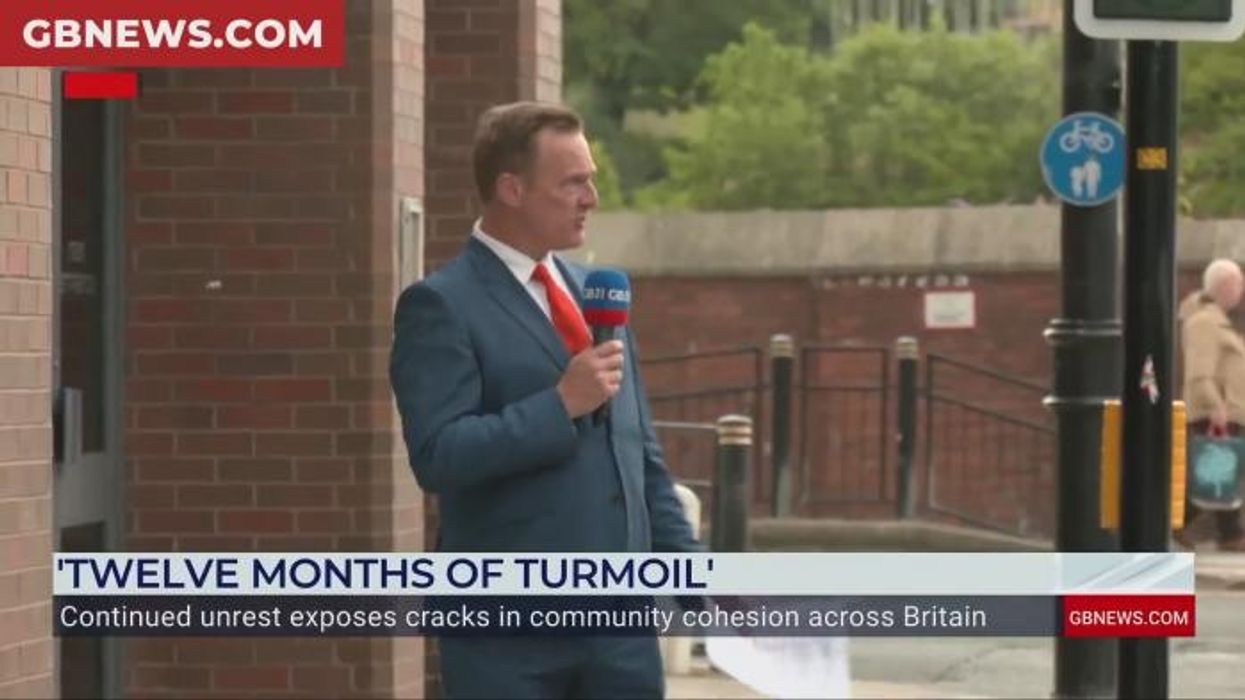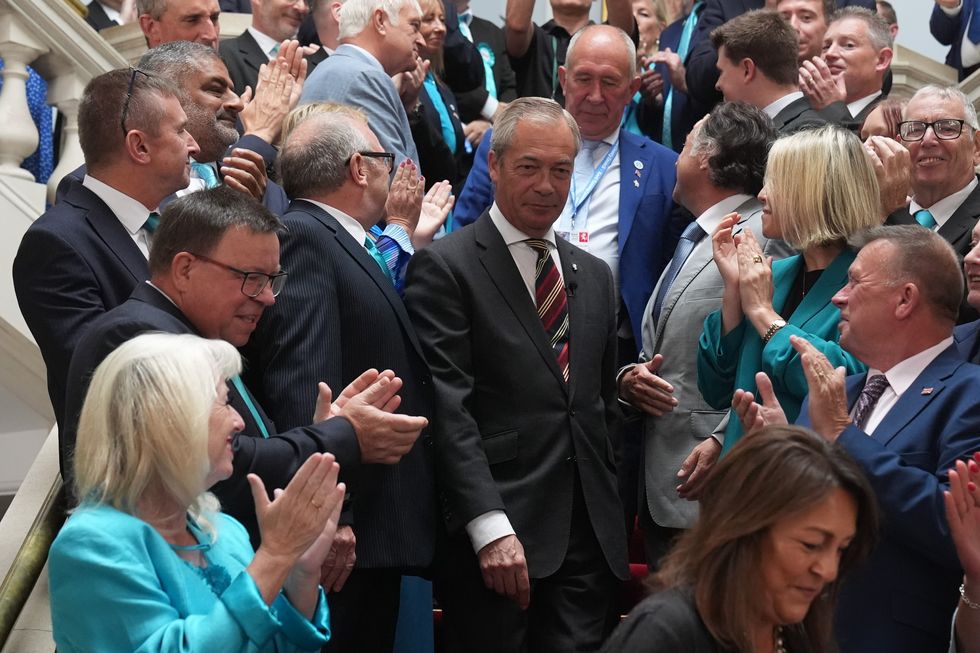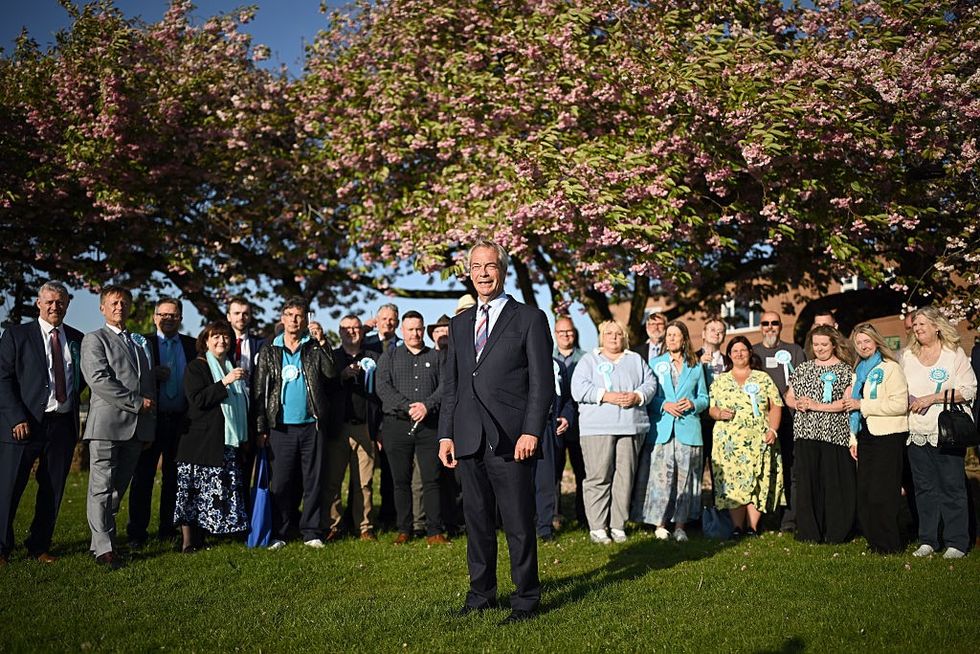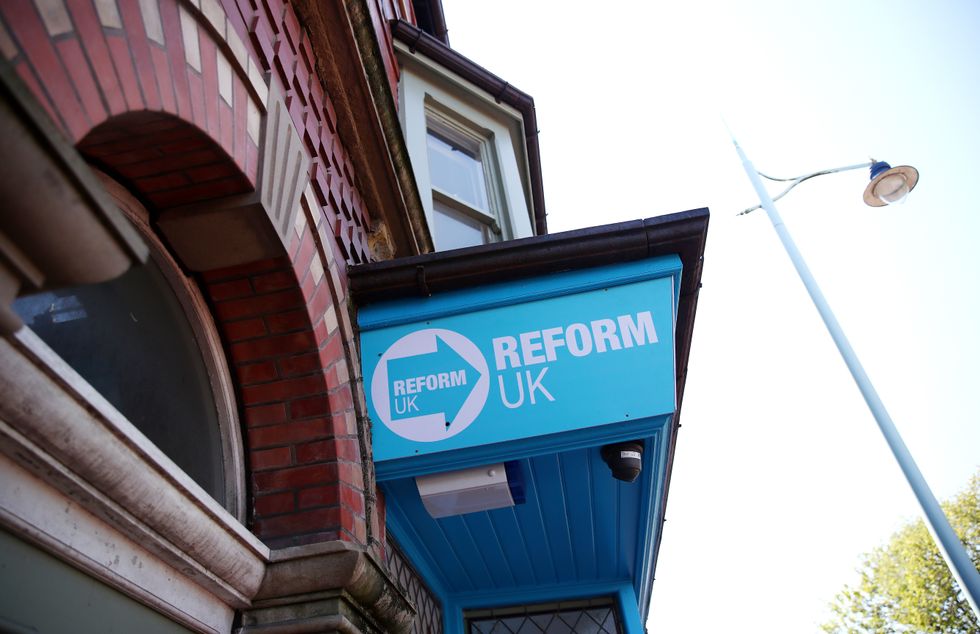From saving cash to restoring British pride: Five ways Reform's first 100 days in local office have changed communities

Sunderland councillor Dominic McDonough calls on MPs to 'stop sneering and start listening' to Britons |
GB NEWS
Nigel Farage's party has taken control of 12 councils across the county
Don't Miss
Most Read
Trending on GB News
Reform UK took control of 12 councils after the elections, stretching from County Durham to Kent.
While their vote share was around 31 per cent, it was well ahead of the Conservatives on 23 per cent, the Liberal Democrats on 17 per cent, and Labour on 14 per cent.
In Kent, 37 per cent of the vote delivered Reform UK 70 per cent of the seats, while in Derbyshire the same share was rewarded with 66 per cent of all the councillors.
**ARE YOU READING THIS ON OUR APP? DOWNLOAD NOW FOR THE BEST GB NEWS EXPERIENCE**
Over in adjacent Staffordshire, Reform won 72 per cent of the seats on 41 per cent of the vote. Council leader Ian Cooper told GB News that the party had to take a "pragmatic approach" to leading.
He said: "When we came in, we weren't going to go mad. People think you can go into local government, pull lots of levers of powers, lots of leave it of power and change things automatically.
"But you have to take a pragmatic approach on this. You have to listen, you have to learn, you have to understand, and we have to then come back."
Some 100 days after Reform's local election tidal wave, Nigel Farage MP said: "On May 1, we showed that if you vote Reform, you get Reform.
"In the 100 days since, Reform UK councils across Britain are actioning the change we promised and already delivering on their manifesto commitments.
"From rolling back the devastating net zero agenda on a local level to cutting wasteful spending, Reform councils are standing up for the priorities of local people, not the whims of bureaucrats or the entrenched elite."
GB News has taken a look at some of the things Reform has done for the councils they now control.

Reform UK leader Nigel Farage is applauded by members of Kent County Council
|PA
Rolling back the net zero agenda
Staffordshire County Council, under Councillor Cooper's leadership, said it secured all farms in the county from sale and future development by solar, wind or battery farms and the net zero land grab, meaning all 63 farms will continue producing food.
Durham County Council, meanwhile, became the first UK council to scrap its net zero emergency declaration, instead declaring a care emergency to recognise the critical and escalating crisis in children’s social care and SEND provision.
Kent County Council has recommended scrapping the Net Zero Renewable Energy Programme of property modifications, saving £32million over four years.
The council is also scrapping the transition of its fleet to electric vehicles, which it claims will save a further £7.5million by 2030.
Leicestershire County Council scrapped net zero and redirected £2million from the wasteful "Net Zero Carbon Reserve" into real-world flooding protection and drainage work.
And West Northamptonshire Council has removed its net zero targets altogether.
 Nigel Farage addresses supporters and the media at Staffordshire County Showground after Reform won control of Staffordshire County Council | GETTY
Nigel Farage addresses supporters and the media at Staffordshire County Showground after Reform won control of Staffordshire County Council | GETTYPushing back on HMOs (Homes in Multiple Occupation)
Durham County Council has introduced an Article 4 Direction, which requires owners to apply for planning permission when converting properties into Homes in Multiple Occupation (HMO), making it more difficult to convert homes.
West Northamptonshire Council has issued new legislation requiring landlords in designated areas to apply for a license or face unlimited fines or civil penalties up to £30,000.
Saving taxpayers money
Durham County Council says it has made almost £25million in savings by earmarking CAPEX projects for cancellation, not upgrading the fleet to EV, scrapping solar PVs that didn’t make economic sense, and scrapping the air source heat pump at the new county hall.
West Northamptonshire Council has published a renewed software licensing agreement with Microsoft, which it says saved taxpayers in the region of £1million over three years.
Staffordshire County Council stopped the rollout of EV charging in areas where they say there is little to no customer demand, saving the taxpayer £4.5million.
Meanwhile, Nottinghamshire County Council ensured that there were no pay hikes to councillor allowances, saving £112,000 a year.
Kent County Council has reduced the level of debt by £16million, saving £2,000 in interest payments alone and scrapped plans to move staff into a neighbouring building, saving the council over £14million in borrowing.
Lincolnshire County Council started looking at options to save at least £25million by streamlining and modernising services.
Derbyshire County Council made £6,000 savings in councillor allowances in the first 3 weeks and delayed a pay strategy review for 2 years, saving millions of pounds.

Reform UK signage in St. Annes, Lancashire,
|PA
Improving local transportation
Kent County Council says it has increased investment of over £67million for renewing roads, and fixing potholes and paths.
In Leicestershire County Council, £42million has been invested towards the A511 extension and £3million towards resurfacing the county’s roads.
Lancashire County Council is fast-tracking the mapping of every pothole in the county, cutting the timeline from years to weeks in order to speed up pothole repairs.
 Reform Cllr Linden Kemkaran (front centre), leader of the Reform UK Kent County Council group, with the Reform UK councillors elected to Kent County Council, | PA
Reform Cllr Linden Kemkaran (front centre), leader of the Reform UK Kent County Council group, with the Reform UK councillors elected to Kent County Council, | PAFlying patriotic flags
Reform UK councils have announced the flying of the Union Flag, St George’s Cross and relevant county flags only from administrative buildings.
Councillors and MPs from all parties attacked Reform's policy for potentially stopping regional flags like that of Kent or Yorkshire from being flown.
A Reform spokesman said: "Reform UK will proudly fly the Union Jack, St George's Flag and County flags.
"Unlike the Tories and Labour, we are proud of our country and history."
More From GB News










